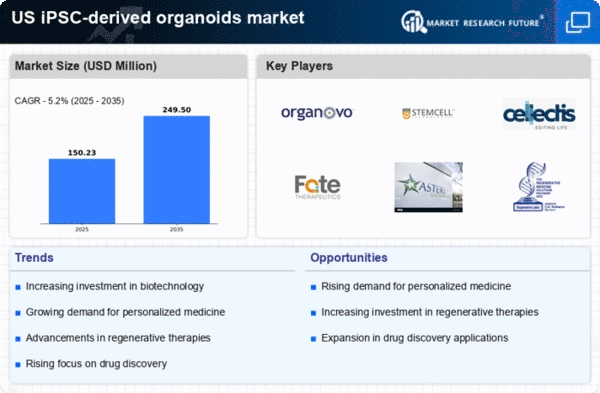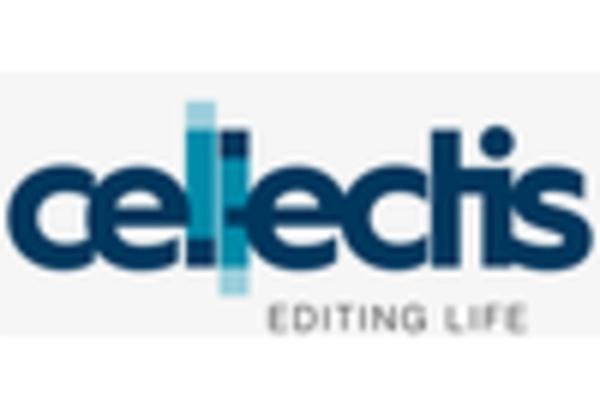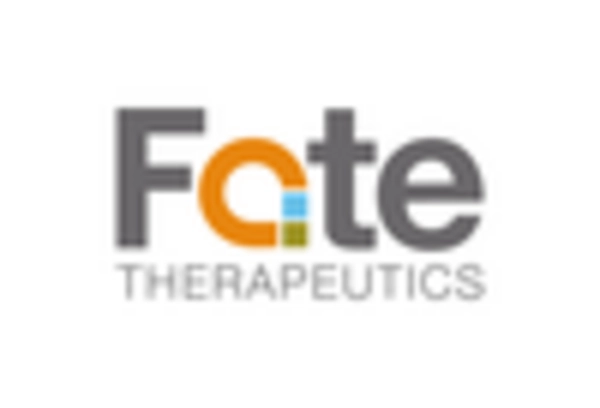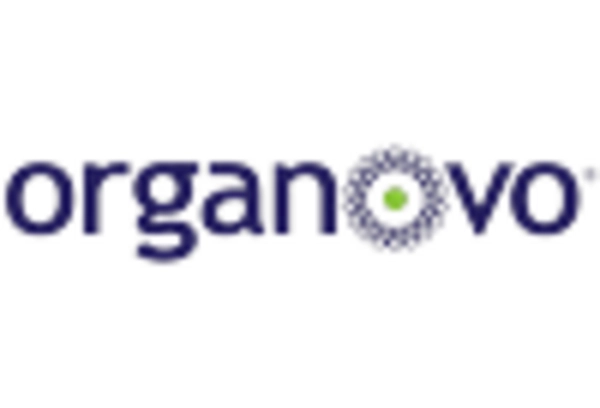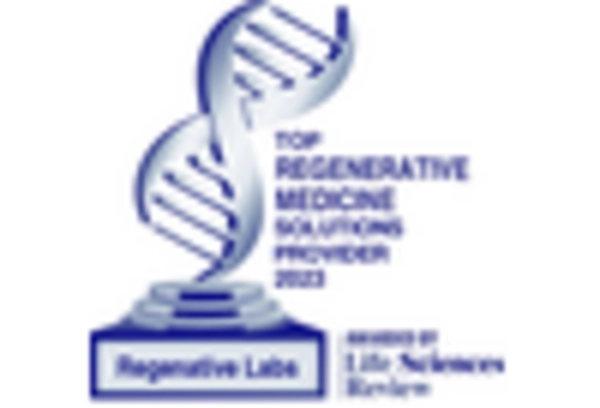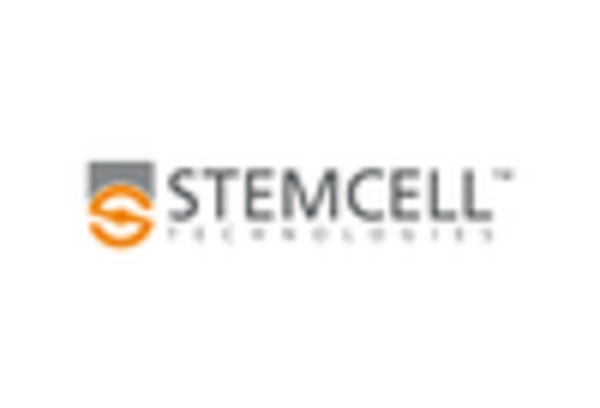Growing Interest in Drug Discovery
The increasing focus on drug discovery is a pivotal driver for the iPSC-derived organoids market. Pharmaceutical companies are actively seeking innovative methods to enhance drug development processes. Organoids derived from induced pluripotent stem cells (iPSCs) offer a more accurate representation of human tissues, which can lead to improved drug efficacy and safety profiles. The market for drug discovery is projected to reach approximately $50 billion by 2026, indicating a robust growth trajectory. This trend suggests that the integration of iPSC-derived organoids into drug discovery pipelines could significantly streamline the process, thereby attracting substantial investments and interest from biopharmaceutical firms. As a result, the demand for organoids is likely to surge, further propelling the growth of the ips cell-derived-organoids market.
Rising Prevalence of Chronic Diseases
The escalating prevalence of chronic diseases in the United States is a significant driver for the ips cell-derived-organoids market. Conditions such as cancer, diabetes, and neurodegenerative disorders are on the rise, necessitating advanced research and therapeutic strategies. iPSC-derived organoids provide a unique platform for studying disease mechanisms and testing potential treatments in a more relevant biological context. The market for chronic disease management is expected to exceed $1 trillion by 2025, highlighting the urgent need for innovative solutions. This growing demand for effective therapies is likely to propel the adoption of organoids in research and clinical applications, thereby enhancing the prospects of the ips cell-derived-organoids market.
Regulatory Support for Stem Cell Research
Regulatory frameworks in the United States are increasingly supportive of stem cell research, which is a crucial driver for the ips cell-derived-organoids market. Agencies such as the FDA have established guidelines that facilitate the use of iPSCs in research and therapeutic applications. This regulatory backing not only enhances the credibility of iPSC-derived organoids but also encourages researchers and companies to invest in this technology. The National Institutes of Health (NIH) has allocated significant funding towards stem cell research, amounting to over $1 billion annually. Such financial support, combined with favorable regulations, is likely to stimulate innovation and development within the ips cell-derived-organoids market, fostering a conducive environment for growth.
Collaboration Between Academia and Industry
The increasing collaboration between academic institutions and industry players is a notable driver for the ips cell-derived-organoids market. Universities and research organizations are partnering with biotechnology and pharmaceutical companies to leverage their expertise in iPSC technology. These collaborations often lead to the development of novel organoid models that can be utilized for drug testing and disease modeling. Such partnerships are becoming more common, with funding for collaborative research projects reaching approximately $2 billion annually in the U.S. This synergy not only accelerates innovation but also enhances the commercial viability of iPSC-derived organoids, thereby contributing to the growth of the ips cell-derived-organoids market.
Technological Advancements in Organoid Culture
Technological advancements in organoid culture techniques are driving the growth of the ips cell-derived-organoids market. Innovations in 3D bioprinting, microfluidics, and biomaterials are enabling the development of more sophisticated organoid models that closely mimic in vivo conditions. These advancements enhance the reproducibility and scalability of organoid production, making them more accessible for research and therapeutic applications. The market for 3D bioprinting alone is projected to reach $6 billion by 2027, indicating a strong trend towards integrating advanced technologies in organoid research. As these technologies continue to evolve, they are likely to further propel the adoption of iPSC-derived organoids, thereby fostering growth in the ips cell-derived-organoids market.


